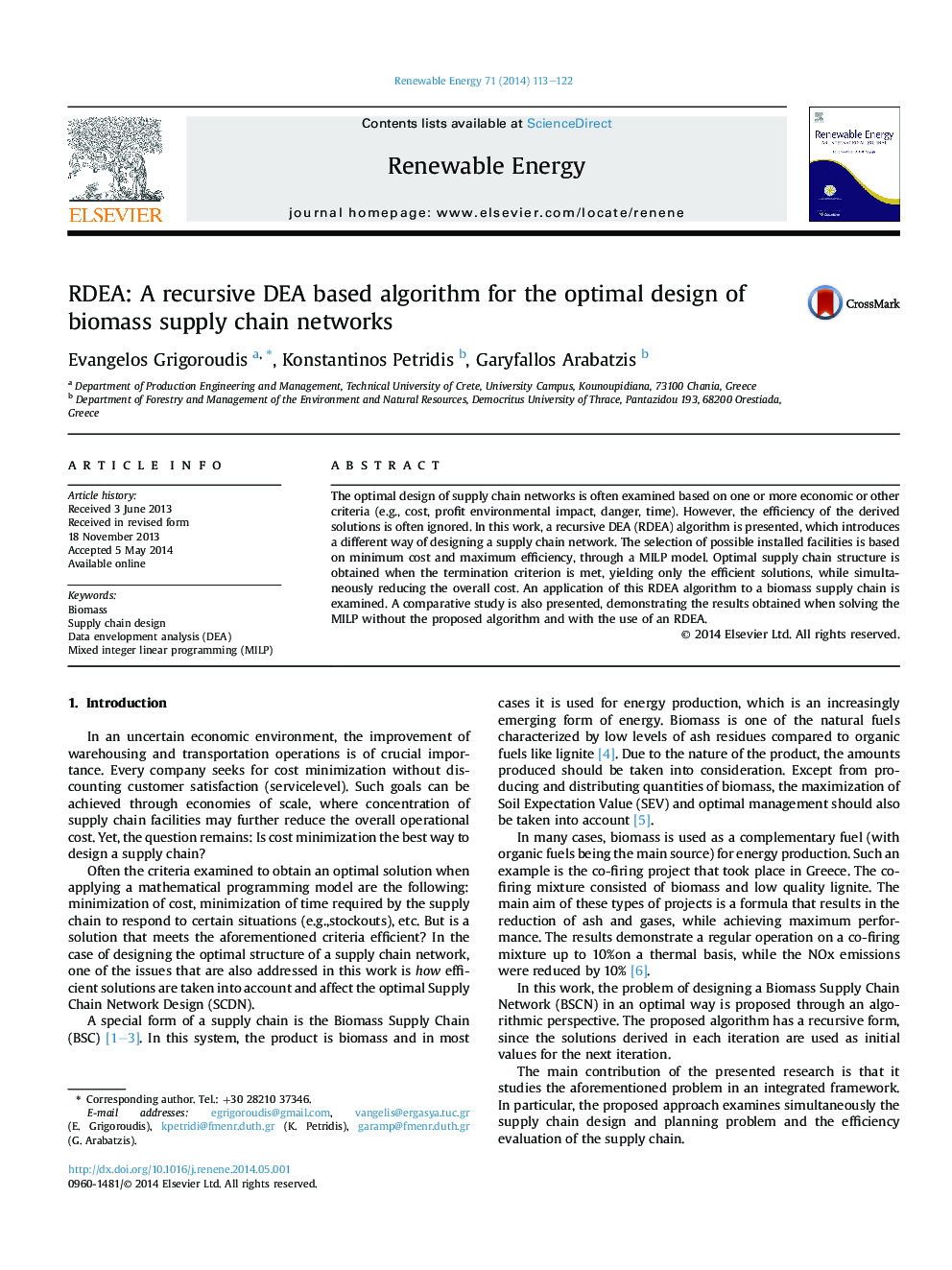| Article ID | Journal | Published Year | Pages | File Type |
|---|---|---|---|---|
| 6767950 | Renewable Energy | 2014 | 10 Pages |
Abstract
The optimal design of supply chain networks is often examined based on one or more economic or other criteria (e.g., cost, profit environmental impact, danger, time). However, the efficiency of the derived solutions is often ignored. In this work, a recursive DEA (RDEA) algorithm is presented, which introduces a different way of designing a supply chain network. The selection of possible installed facilities is based on minimum cost and maximum efficiency, through a MILP model. Optimal supply chain structure is obtained when the termination criterion is met, yielding only the efficient solutions, while simultaneously reducing the overall cost. An application of this RDEA algorithm to a biomass supply chain is examined. A comparative study is also presented, demonstrating the results obtained when solving the MILP without the proposed algorithm and with the use of an RDEA.
Keywords
Related Topics
Physical Sciences and Engineering
Energy
Renewable Energy, Sustainability and the Environment
Authors
Evangelos Grigoroudis, Konstantinos Petridis, Garyfallos Arabatzis,
